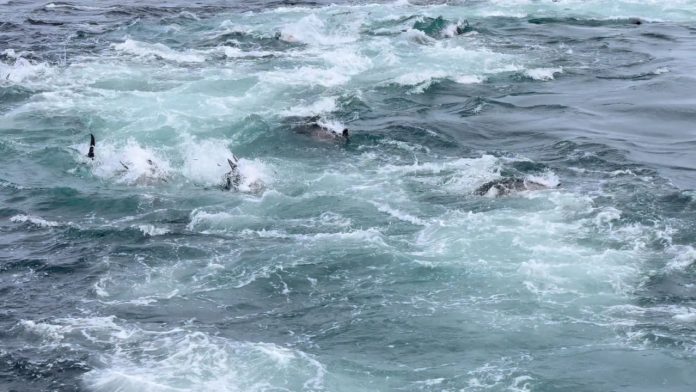UK coastal waters are experiencing their warmest start to the year since records began, with profound consequences for marine ecosystems and fishing communities, fundamentally altering habitats and species distributions, the BBC reports.
Provisional Met Office data analysed by the BBC reveals that the average surface temperature of UK seas over the first seven months of 2025 exceeded any comparable period since 1980 by more than 0.2°C. While this shift may appear incremental, it reflects a sustained warming trend driven by fossil fuel emissions.
Marine heatwaves, prolonged periods of abnormally high sea temperatures, have persisted around UK coasts for much of the year. Dr. Caroline Rowland of the Met Office attributes this to oceans absorbing 90% of excess heat from greenhouse gases.
“The main contributor to marine heatwaves around the UK is the buildup of heat in the ocean,” she stated, warning these events will grow “more frequent and more intense” due to climate change.
Professor John Pinnegar of the Centre for Environment, Fisheries and Aquaculture Science (Cefas) noted the trend’s acceleration: “What used to be quite a rare phenomenon is now becoming very, very common.”
This thermal shift catalysed the arrival of species historically uncommon in UK waters. Marine scientists and naturalists report surges in octopus, bluefin tuna, and mauve stinger jellyfish populations.
Meanwhile, cold-adapted species face mounting pressures. Cod and wolf-fish are retreating northward, while the ocean quahog, a clam capable of living 500 years, faces habitat erosion. Static seabed dwellers like sea pens and fan mussels are particularly vulnerable, projected to lose up to 40% of suitable habitat by 2100.
A landmark Cefas study examining 19 threatened species predicts a complex realignment of UK marine life. Mobile species like basking sharks, spurdog sharks, and native oysters, which could see habitats double, stand to gain, particularly in the central and northern North Sea.
Conversely, southern and western waters risk ecological impoverishment. This northward redistribution necessitates adaptive conservation strategies. Bryony Townhill, lead Cefas scientist, emphasises creating habitat corridors to enable species migration:
“To help species adapt, we need to create habitat corridors, closely monitor their movements, and ensure fisheries and conservation management measures evolve with the changing climate,” Townhill said.
The UK’s status as a marine climate hotspot, among 20 global sites warming fastest over 50 years, intensifies the urgency. Projections indicate seas warming 0.25°C–0.4°C per decade, compelling both fishers and consumers to reconsider their relationships with the ocean.
